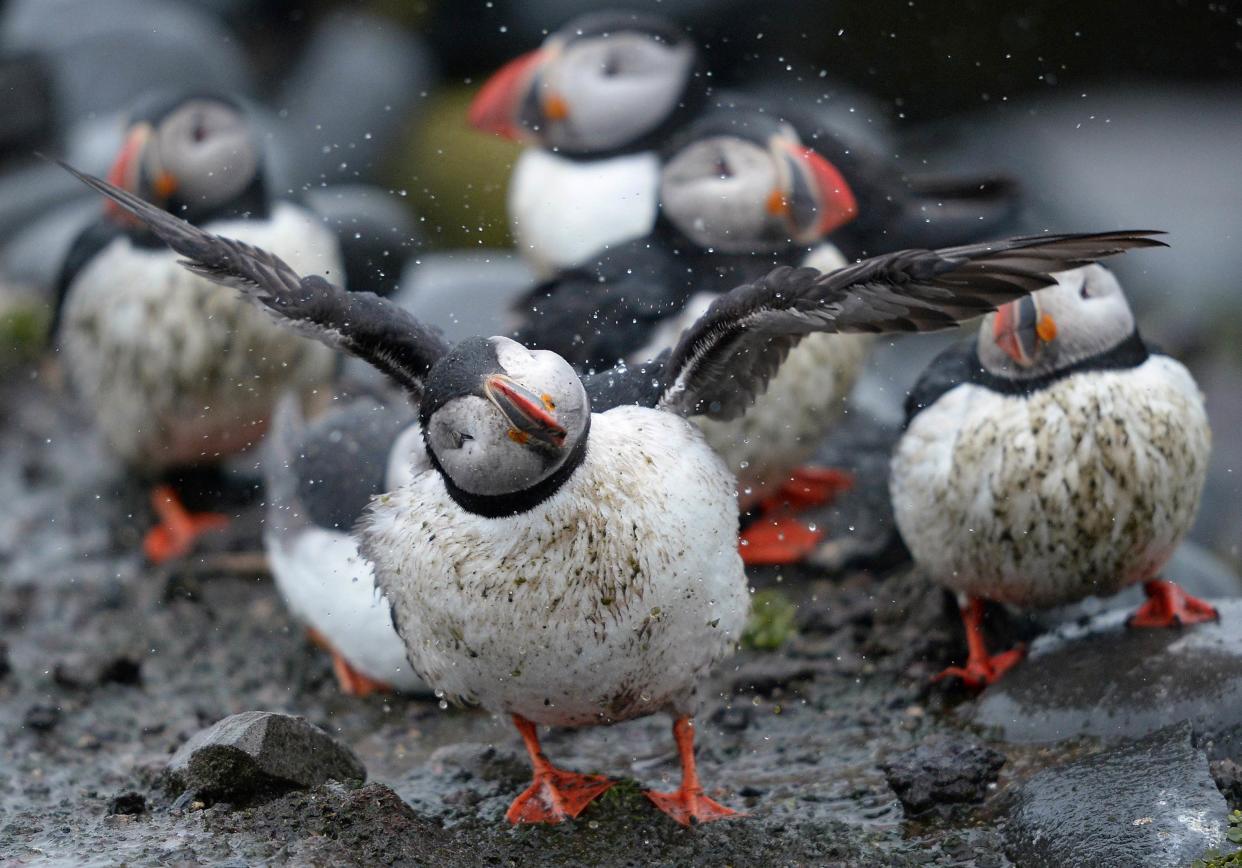Puffins are declining fast on British islands - and could go extinct within decades

Climate change, plastic pollution and overfishing have been blamed for a sharp decline in puffins at one of Britain’s most important habitats for the birds.
Experts have warned that puffins could be extinct on Britain’s remote Farne islands within just 50 years, as numbers have plunged 12% in the past five years.
National Trust experts say the numbers are ‘much worse than expected’ – with numbers on one island having fallen by 42%.
National Trust ranger Tom Hendry said, ‘Initial findings are concerning. Numbers could be down due to stormy or wetter weather as well as changes in the sand eel population, which is one of their staple foods.
MOST POPULAR TODAY ON YAHOO
There’s a country with a lower opinion of the EU than the UK has
Parents sue 30-year-old son to force him to move out of their home after he refused to leave
‘An act of pure evil’: Student who threw acid on ex-boyfriend who later died jailed for 12 years
Lotto winner Barbara Wragg who gave away most of her £7 million jackpot dies aged 77
Couple found guilty of murdering French nanny in trial ‘stranger than fiction’
‘If the final results reflect this drop, this will increase the need for us to monitor these beautiful clowns of the sea more frequently.
‘Predictions have been made that within the next 50 to 100 years these stunning birds will completely die out on the Farnes.
‘
If the causes of puffin decline are what we expect, it will require a bigger effort to encourage everyone to think about how we can prevent overfishing, reduce our use of single-use plastics and limit our use of non-renewable energy, but it can be done.’

 Yahoo News
Yahoo News 

